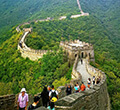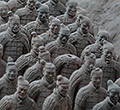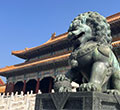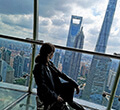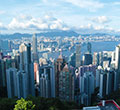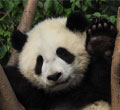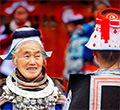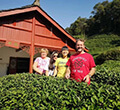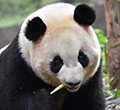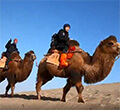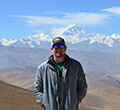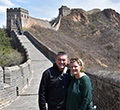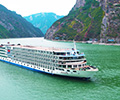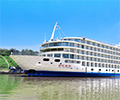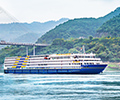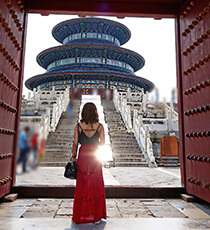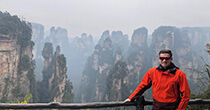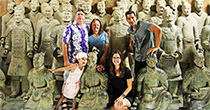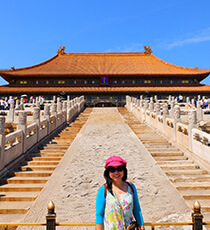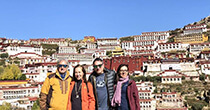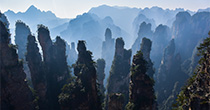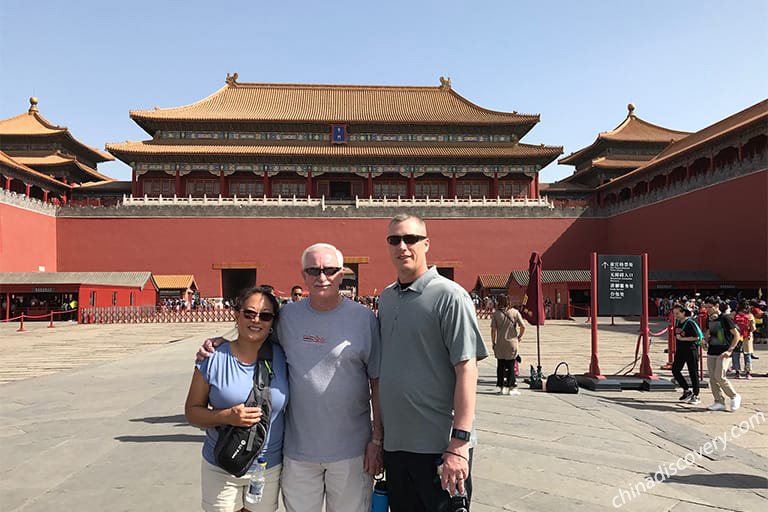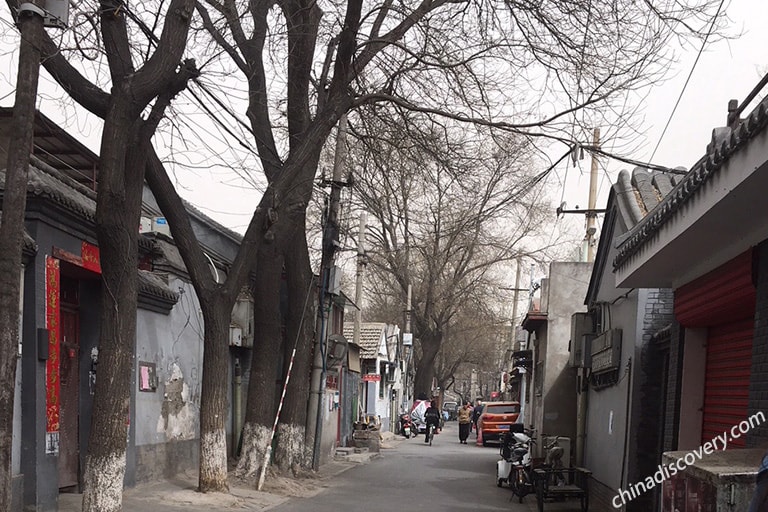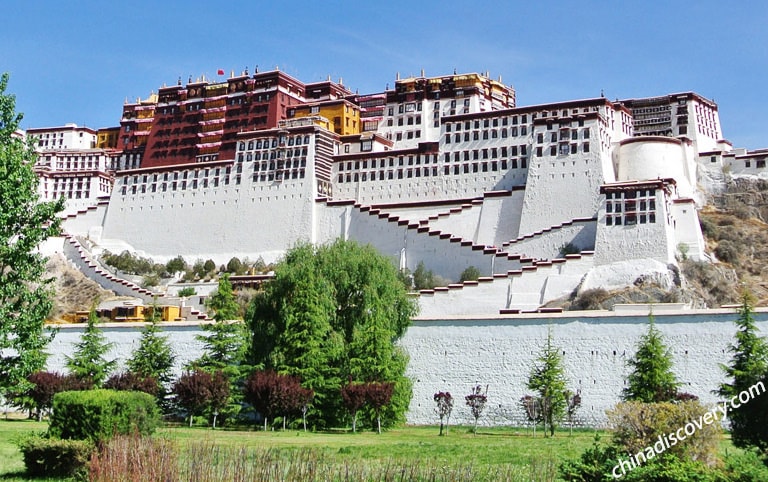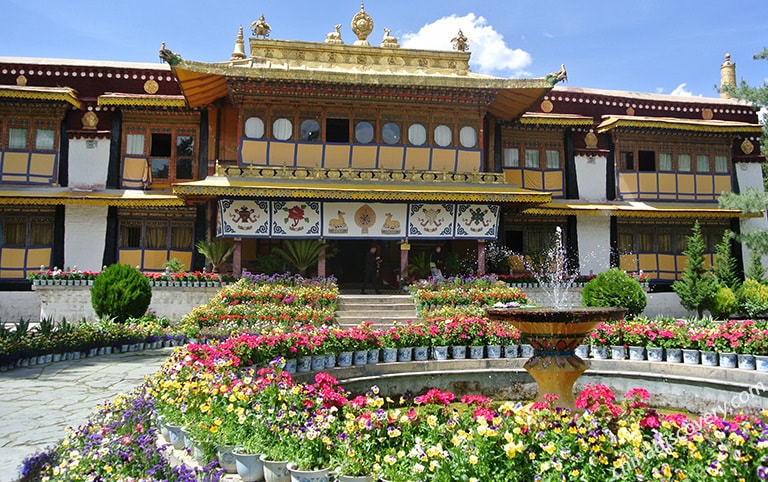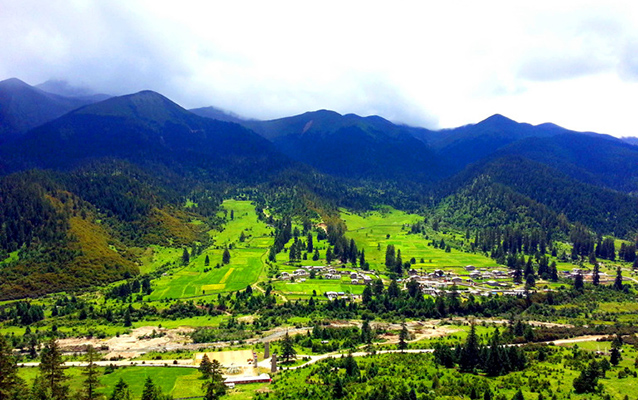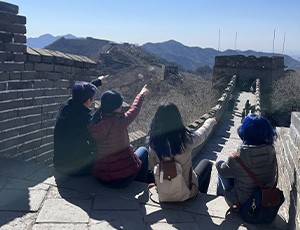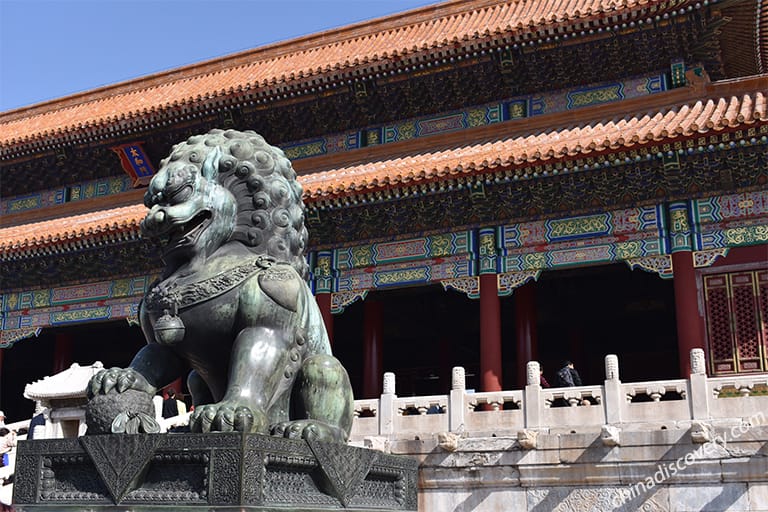Your tour - at a glance
Day 1~3 Arrival & Beijing Tour
Arrive at Beijing and go to visit the best highlights of Beijing, such as the grand Tiananmen Square, historical Forbidden City, spectacular Temple of Heaven, manmade wonder Great Wall of China, traditional Hutong, etc.
Day 4~6 Xian Tour & Flight to Lhasa
Two full day to visit the incredible Terracotta Warriors, leisurely walk on the Ancient City Wall, Bell & Drum Tower Square, Great Mosque and Muslim Quarter, explore the Big Wild Goose Pagoda and Shaan’xi History Museum.
Day 7~8 Lhasa City Tour
Two full days to explore the holy Lhasa, covering the grandiose Potala Palace, sacred Jokkang Temple, Barkor Street, delicate Norbulingka Park, and two major temples in Tibet – Drepung Monaster and Sera Monastery.
Day 9~11 Nyingchi Tour & Departure
Travel from Lhasa to Nyingchi. Before arrive at the beautiful Basumtso Lake, visit the Gelug monastery - Ganden Monastery. While in Nyingchi, the visit to Lulang Forest will definetly please your eyes.
Full Itinerary Day by Day
Day 1 Beijing Arrival
Ni Hao! welcome to Beijing, the iconic city and capital of China! You will be met by our local tour guide at the arrival hall of Beijing Airport and escorted to your downtown hotel by a private comfortable vehicle. The rest of the day is your own to relax. If you want to explore nearby areas, feel free to get some practical suggestions from your tour guide.
Arrival Ideals: At present, there are many international and domestic flights to Beijing. Besides, you can take a high speed train to this capital city from Shanghai (5-6 hrs), Xian (5.5 hrs), Guangzhou (8-9.5 hrs), etc.
Day 2 Beijing (B, L)
After breakfast, start to explore the historical face of Beijing with a brief visit to Tiananmen Square, now the largest city plaza in the world. Tiananmen Gate on the northern side of the square was the site where Chairman Mao announced the establishment of the People's Republic of China. Stepping into the Tiananmen, you will see one of the world’s five most important palaces – the Forbidden City, a huge palace complex of more than 9,000 rooms where 24 emperors of the Ming and Qing Dynasties lived. Pass through various doorways in this magnificent structure to admire the beautiful and well preserved buildings decorated with yellow-glazed tile roofs, white marble bases and splendid colorful paintings.
Leave the city, drive about 70km to witness one of the Seven Wonders of
the World - the Great Wall. Visit the Mutianyu, a less
crowded yet well-preserved segment of the Great Wall built in the Ming Dynasty.
It will more than live up to all of your expectations! You’ll take a cable car to ascend the Great Wall, then hike the most beautiful and interesting part of Mutianyu. It's a wonderful experience to climb up its rising towers to enjoy scenic views and take brag-worthy photos of the wall wriggling along mountain ridges. After the exciting time, descend Mutianyu Great Wall by cable car. (Note: If energy permits, you can hike up or down which takes about 40 minutes to climb steps. Please tell your likes to your travel consultant.)
Optional activity: 1). In the evening, you could watch a wonderful Kungfu Show in the Red Theater (Hong Ju Chang) which usually starts at 19:30. 2). Or, you could enjoy the well-known Beijing Opera at Liyuan Theater to appreciate the classic Chinese art performance at 19:30-21:00.
-
 Linda's family visited the Forbidden City with China Disocvery
Linda's family visited the Forbidden City with China Disocvery
-
 Our guest Franck from French hiked on Jinshanling Great Wall
Our guest Franck from French hiked on Jinshanling Great Wall
Day 3 Beijing - High Speed Train to Xian (B,L)
After breakfast, drive to the imperial site – Temple of Heaven. It was originally used to pay homage to Heaven and pray for harvest, now becomes a bustling place for locals to take part in traditional activities, such as Tai Chi, dancing, kite flying, water calligraphy, etc.
Then, get back to central city to hop on a rickshaw to experience Beijing Hutongs – small alleys made of neighboring quadrangle dwellings. Shuttle among different Hutongs to feel the old Beijing life style, meet various antique shops and small boutiques, feel the historical changes of Beijing, also pay a visit to a local family's home in the traditional Hutongs.
Till now, your Beijing tour is about to end. Your tour guide will see you off at the Beijing West Railway Station for your high speed train to Xian (about 5 hours). Be pick up by your tour guide at Xian North Railway Station, and escorted to your hotel in Xian. The rest of today is on your own to explore this ancient capital of China.
-
 Hutong Shot by Our Customer Taylor
Hutong Shot by Our Customer Taylor
-
 Temple of Heaven in Beijing Shot by Our Customer
Temple of Heaven in Beijing Shot by Our Customer
Day 4 Xian (B, L)
After breakfast, drive about 40km to discover one of the greatest man-made wonders in the world – the Terracotta Warriors and Horses, built by the first emperor of China Qin Shihuang to protect him in his afterlife. Over 8,000 life-size warriors, horses and chariots, buried in 3 pits for more than 2,000 years until uncovered by a local farmer in 1974, form an ancient military army with complete battle units of infantry, cavalry, etc. Standing in front of these figures, one can’t help being amazed not only by the ambition of Emperor Qin Shihuang but also by the fabulous artistic skills of ancient Chinese artisans.
After lunch, return back to Xian for some leisure time at the Bell & Drum Tower Square, where the biggest and most intact Bell Tower and Drum Tower in China stands. Then head to the Great Mosque, a very special place made up of a group of buildings that include multi-story buildings, towers, pavilions and palaces with Chinese style decoration on the outside and Muslim style decoration on the inside. This visit is followed by a relaxing wander around bustling and lively Muslim Community, a place where you can try different local snacks and explore Muslim culture.
Optional activity: Enjoy a wonderful Tang Palace Dance Show (usually from 8pm to 9pm) after a hearty dumpling dinner.
-
 Terracotta Warriors
Terracotta Warriors
-
 Muslim Quarter, Picture Shared by Our Guest Anath from India
Muslim Quarter, Picture Shared by Our Guest Anath from India
Day 5 Xian (B, L)
After breakfast, head to Da Cien Temple, a famous Buddhist sutra translation site during the Tang Dynasty. Big Wild Goose Pagoda is the most famous building in the temple. The pagoda, rising to a height of 64.5 meters, was built by the famous Buddhist master Xuanzang to preserve classic scriptures he bought back from India during the early Tang Dynasty. Xuanzang was the prototype character for Tang Seng in the famous Chinese novel “Journey to the West”. (Note: It costs an extra 30 RMB if you want to climb up the Big Wild Goose Pagoda)
Next is an educational visit to the Shaanxi History Museum where you can ramble in the modern exhibition halls to appreciate historic relics such as porcelains, paintings, and currencies dating from the Zhou to the Tang dynastic periods (1100BC to 907 AD). (Note:
Shaanxi History Museum may be replaced with other activity or attraction
because of crowding tourists during July ~ early September and China’s National
Day during Oct.1-Oct.7. You may check details with your travel consultant.)
In the afternoon, you will take a wonderful stroll on the Ancient City Wall, the largest and best-preserved ancient city wall in China. Enjoy panoramic views of modern Xian while you leisurely examine this well-maintained city wall which is 12 meters high and 18 meters wide with a total circuit of nearly 14 kilometers.
Optional activity: Take a relaxing cycling trip on the Ancient City Wall.
-
 Our customers' group visited Xian Shaanxi History Museum
Our customers' group visited Xian Shaanxi History Museum
-
 Our customers enjoyed biking on Ancient City Wall in 2019
Our customers enjoyed biking on Ancient City Wall in 2019
-
 Our customer Josh from USA visited Big Wild Goose Pagoda in December 2020
Our customer Josh from USA visited Big Wild Goose Pagoda in December 2020
Day 6 Flight to Lhasa (B, L)
Today is free until your guide escorts you to catch your flight to Lhasa (about 3hrs). Upon arrival, a tour guide will pick you up at the arrival hall and escort you to your hotel in downtown Lhasa while you enjoy the stunning views along the Yarlong Tsangpo River. After check in, the rest of the day is for you to acclimate to the high altitude and weather of Lhasa.
Tips of Today: 1. You can go out for some walking to acclimate the high altitude but avoid strenuous activity after arrival; 2. You’d better not have bath; 3. Drink more water.
Day 7 Lhasa (B)
After breakfast, start an incredible day of exploration in Lhasa city. The grandiose Potala Palace will be the first site to discover. After more than 1300 years of historical changes, this colossal Palace still dominates the skyline of Lhasa city. The Palace is the political and religious center of Tibet and has served as the governance and preaching site for the Dalai Lama. Climbing up the sacred steps to the Red Palace and White Palace you will explore their marvelous interiors full of exquisite Thangkas, numerous Buddha statues, vivid wall paintings, and other works of Buddhist art.
In the afternoon, first visit the holiest Buddhist temple in Tibet, Jokhang Temple, where the 12-year-old-like Shakyamuni statue is consecrated. With a history stretching over 1,300 years, this temple combines the architecture styles of Tibet, China, Nepal and India. As a spiritual center of Tibet, Jokhang Temple attracts hundreds of devoted pilgrims to worship there every day. Outside the door of Jokhang Temple is the famous pilgrimage circle, Barkhor Street, where you can join faithful Tibetans in colorful attires walking the circle around Jokhang Temple.
-
 Potala Palace
Potala Palace
-
 Jokhang Temple
Jokhang Temple
-
 Meet with Tibet locals at Barkhor Street
Meet with Tibet locals at Barkhor Street
Day 8 Lhasa (B)
After breakfast, we start our day with a visit to the summer palace of the Dalai Lamas and also the largest Tibetan garden – Norbulingka Park. The luxuriant trees and flowers, cool ponds and comfortable palaces make Norbulingka the best place for a summer retreat. Then drive about 5km westward to Drepung Monastery. This monastery used to play a crucial role in Tibet Buddhism as the school of the Dalai Lamas. As you walk along, immense temples and chapels leap to your eyes one after another. In its heyday, more than 10,000 monks lived and studied in the monastery. Various Buddhist rituals are performed in the monastery during festivals, most famous being the ceremony of Buddha Display in the annual Shoton Festival.
We will then visit the featured six hundred year-old Sera Monastery, famous for its grand ceremony of Buddhist debating and its beautiful temples with sensational icons, murals and history.
-
 Norbulingka Park - A Beautiful Tibetan Style Garden
Norbulingka Park - A Beautiful Tibetan Style Garden
-
 Monks Debating at Sera Monastery
Monks Debating at Sera Monastery
-
 Drepung Monastery Entrance
Drepung Monastery Entrance
Day 9 Lhasa – Nyingchi (B)
Today, you are going to visit the "Switzerland of Tibet" - Nyingchi which is featured in stunning natural plateau landscape. After breakfast, drive about 1.5 hours to get to the Gandan Monastery for a visit. It is the first Gelugpa monastery. This monastery plays a very important role in Tibetan Buddhism because it was founded by the founder of Gelugpa which is now the most influential sect of Tibet Buddhism. Both the buddhist leader Dalai Lama and Pachen Lama belong to Gelugpa.
After visit, you’ll head to the destination for today - Basomtso Lake. Basomtso Lake, 3,500 meters above sea level, originates from Nyching Tangha Mountain and is a dozen kilometers long. Snow-covered mountains, glaciers and trees are reflected upon the lake’s rippled surface. There are small islands in the middle of the lake with Lamaist temples built upon them.
Accommodate at Basomtso Lake.
Tip of today: The view during the drive from Lhasa to Nyingchi is great! Be sure to take breaks to stretch your legs and take pictures.
Day 10 Nyingchi Tour (B)
Get up early to enjoy the peaceful morning at Basumtso Lake. After breakfast, drive about 135km to Bayi Town. After arrival, go to have lunch and visit the famous Cypress Tree Reserve where has a more than 2,500 years old cypress which is nearly 50 meters tall.
In the afternoon, you are going to see something beautiful and bast - Lulang Forest. While during the driving to Lulang, you will make a short stop at Sekyim la Pass (4720m) to enjoy the breathtaking views of Mt. Namjia Bawa (7,700m) in the distance. As a giant spear stabbing to the blue sky, Mt. Namjia Bawa is the sacred mountain of the local religion of Tibet - Bon.
After arrval at Lulang Forest, throw yourself into the wild and beautiful landscape there. Lulang means "the dragon valley" or “the place where you won’t be homesick” in Tibetan language. And yes, it is true. One can't help soaking in this stunning valley full of lofty green mountains, prosperous trees, wild flowers, winding streams, pleasant meadows, peaceful villages. Looking into distance over the valley, it's a magnificent view of enormous snow-capped mountains standing under blue sky.
Drive back to Bayi for accommodation.
-
 Lulang Forest
Lulang Forest
-
 Mt. Namjia Bawa
Mt. Namjia Bawa
Day 11 Nyingchi Departure (B)
Today is free for you until to be transferred to Nyingchi Milin Airport in time for your flight to next destination.
Departure Idea - Nyingchi Mililn Airport is the second busiest airport in Tibet. You can leave Nyingchi for many popular destinations in China, including Chengdu, Chongqing, Beijing, etc. But you'd better book the flight ticket in advance especially in tourism peak season(July, August, September, October).
Make an Inquiry for Free
Recommended Add-on Options
Visa Notice for Traveling to China
2025/2026 China Tour Visa-friendly Policies:
1. China has launched a 30 Days Visa-free Policy for 38 eligible countries, including several European nations — Andorra, Austria, Belgium, Bulgaria, Croatia, Cyprus, Denmark, Estonia, Finland, France, Germany, Greece, Hungary, Iceland, Ireland, Italy, Latvia, Liechtenstein, Luxembourg, Malta, Monaco, Montenegro, the Netherlands, North Macedonia, Poland, Portugal, Romania, Slovakia, Slovenia, Spain, and Switzerland. In Oceania, Australia and New Zealand are listed, while in Asia, Malaysia, South Korea, Brunei, and Japan are included. This policy is valid till December 31, 2025. Read more »
2. 10 days visa free (transit) for 54 eligible countries include the US, UK, Canada, Brazil, etc. Eligible travelers can now travel across provinces, for example traveling from Beijing to Xian, then to Shanghai. Mohan Railway Port at China-Laos border can be used to enter/leave Yunnan. Hong Kong High-speed Rail West Kowloon Station has been added to Guangdong Province 144-hour transit visa-free. Read more »
3. As of now, China has established full visa exemption agreements with 25 countries, including Asian countries: Thailand, Singapore, Maldives, Kazakhstan, the UAE, Qatar, Armenia, Georgia; European countries: Albania, Belarus, Bosnia and Herzegovina, Serbia, San Marino; African countries: Mauritius, Seychelles; Oceania countries: Fiji, Tonga, Solomon Islands; North American countries: Antigua and Barbuda, Barbados, Dominica, Ecuador, Grenada, Bahamas; South American country: Suriname.
4. Booking of flights and hotels, China itineraries and invitation letters are not required for application of Chinese Tourist Visa for U.S.nationals.
5. Appointment is not required for visa application in many embassies and consulates.
Practical Info about Traveling with Us
Restaurant & Food
Vegetarian food Requirement
Vegetarian food in Chinese cuisine culture is usually divided into 3 categories: the Monastery
Vegetarian
Food, the Court Vegetarian Food and the Folk Vegetarian Food. And the main ingredients are:
soybean,
taro powder, mushrooms, fresh vegetables and tofu (bean curd). It will be easier to find the
vegetarian
restaurants in big cities of china, such as: Beijing, Shanghai, Xian, HK, etc.
If allergic to some food
We suggest you to list any food or ingredients that you are allergic to and let our travel
consultant
know. Then your travel consultant will mark them in the guide’s itinerary, so that our guides
in
different cities can make some preparations and arrangements in advance.
Do our guide and driver join the meal with us?
The tour guides and driver will be at the same restaurants with you, but they will only join the
meal
when you invite. Sometimes the drivers are shy to join as they usually eat fast and could not
understand
English talk around the table, so the guide will be with you more often.
Will we be able to try some local foods during our visit?
Yes, you will. There will be some meals excluded in your itinerary as you like, and your private
guide
will be delighted to give you some suggestions and take you to the local restaurants, if you
are
interested in local food tasting. But remember, some local snacks may not match your stomach,
so
ask your guided for more information before eating.
Shopping
What to buy in China?
In China, there are myriads of souvenirs for visitors, and each city has its own specialty.
How to bargain?
Bargains are not acceptable in big supermarkets and department stores. But in some night markets
or tourist
shops, you can bargain for a lower price, since the vendors always ask for very high price for
a
certain item. You’d better ask the opinion of the guide first, and then the guide will tell you
the
real value and quality of the item. Please note that when the bargain is processing, the guide
will
be hesitate to help as it may annoy the bosses. Just try to let the guides know you will
bargain
in advance.
What to do with persistent vendors?
If you do not need something from them, just do not ask for price. Some of the venders are very
persisted,
and if they keep selling things to you, you can simply say “No, thanks.” (Chinese
pronunciation:
”Bu, XieXie”). If they do not give up, you just keep silence. Silence is sometimes useful to
handle
this situation.
Private tour features
- 1. Private guide, driver and vehicle are for your exclusive use; no matter you are
individually,
or in a family or friends group. The tour is run exclusively for you without strangers.
- 2. Every itinerary can be customized to meet your specific interests/ wishes, that is, you
can choose
your favored hotels, sightseeing spots, the tour length, means of transportation, budget,
etc.
All are free of charge.
- 3. Start the tour on any date you want.
- 4. Escort you through the whole tour. All private transfers during the tour are offered,
including
airport/train station transfer, hotel-attractions round trip transfer.
- 5. The sightseeing during the tour could be based on your own timetable and pace. Flexible
to change
at your short notice.
- 6. Ideal for people who need considerate care and assistance, such as elderly, the
disabled, families
with small children.
Emergency calls
Call your guide, or if you can’t find your guide, call your travel consultant or our office
immediately.
All the phone numbers include in our confirmation letter. Keep the letter with your during your
trip.
